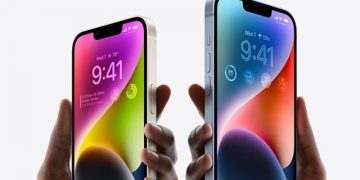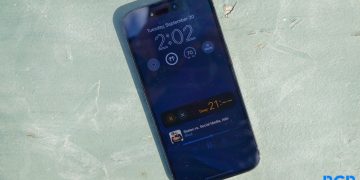from the about-damn-time dept
One of the more notable announcements at Apple’s event this week was that the iPhone 14 lineup won’t have a physical SIM tray to swap out SIM cards. Instead, the devices will embrace eSIM, a technology that’s supposed to make it easier than ever to switch carriers without consumers needing to buy and install a new SIM card.
With eSIM, user identification technology embedded in a traditional SIM card is instead transferred to the device’s processor or modem itself. Ideally, that could let a consumer switch carriers within just a few seconds. iOS 16 also lets you transfer your eSIM between iPhones via Bluetooth.
As we’ve covered in the past, AT&T and Verizon didn’t much like technology that made switching carriers easier, since, for the last few years, they’d been losing subscribers hand over fist to T-Mobile, and (correctly) worried that eSIM would accelerate that trend (T-Mobile lets users use eSIM to test drive the T-Mobile network for a few months).
So AT&T and Verizon leveraged their influence over the GSM Association (GSMA) — a trade association for mobile network operators — to hamstring the technology’s rise. This was done by ensuring the inclusion of bizarre and arbitrary restrictions and bureaucracies a DOJ investigation found served no technical purpose outside of slowing the actual implementation of the tech and locking users to one carrier (as is often the case, AT&T and Verizon faced zero penalty for the behavior).
Which is a long way of saying that Apple fully embracing eSIM will be a good thing. With some growing pains and shorter term caveats. For example, there are some concerns among international carriers that a lack of eSIM options will lock them into paying obnoxiously expensive roaming costs through US carriers:
This is a legit concern. Roaming at AT&T and T-Mobile runs $10 a day, while at T-Mobile it’s free but limited to 256 kbps except 11 central European countries. (You can buy prepaid eSIM service overseas, but from what little I’ve read the selection is really limited so far.) https://t.co/JpfBAdUB26
— Rob Pegoraro (@robpegoraro) September 7, 2022
Still, that problem should be mitigated as eSIM becomes the global standard, which will happen a hell of a lot more quickly now that the most popular phone maker on the planet has fully embraced the tech.
Filed Under: 5g, competition, esim, iphone, mobile carriers, telecom
Companies: apple
Source by www.techdirt.com




























